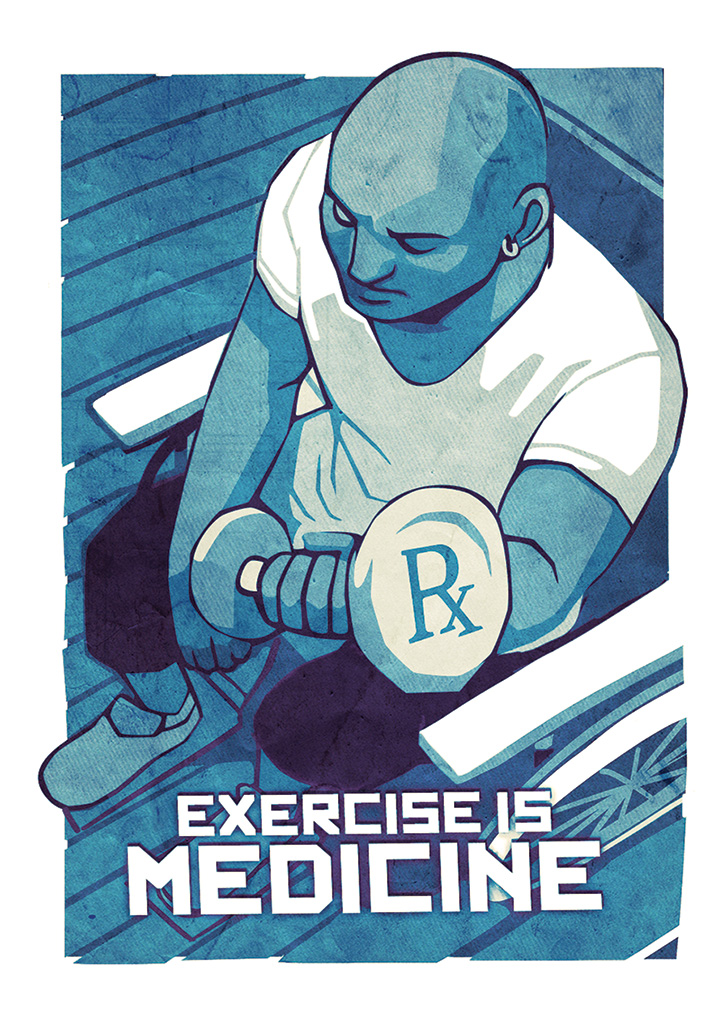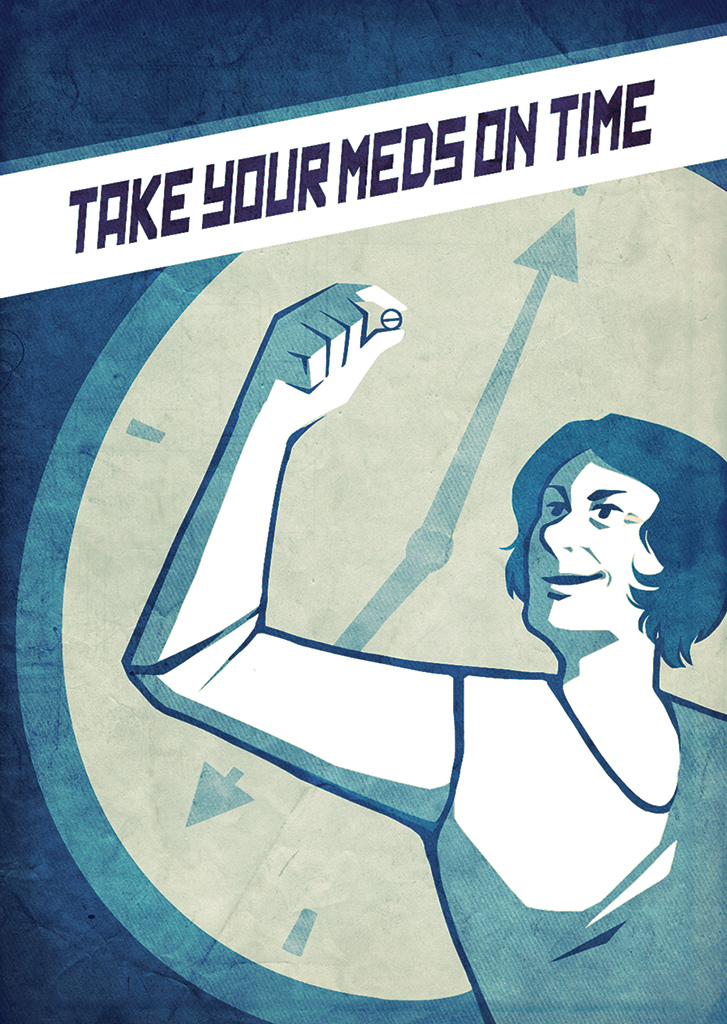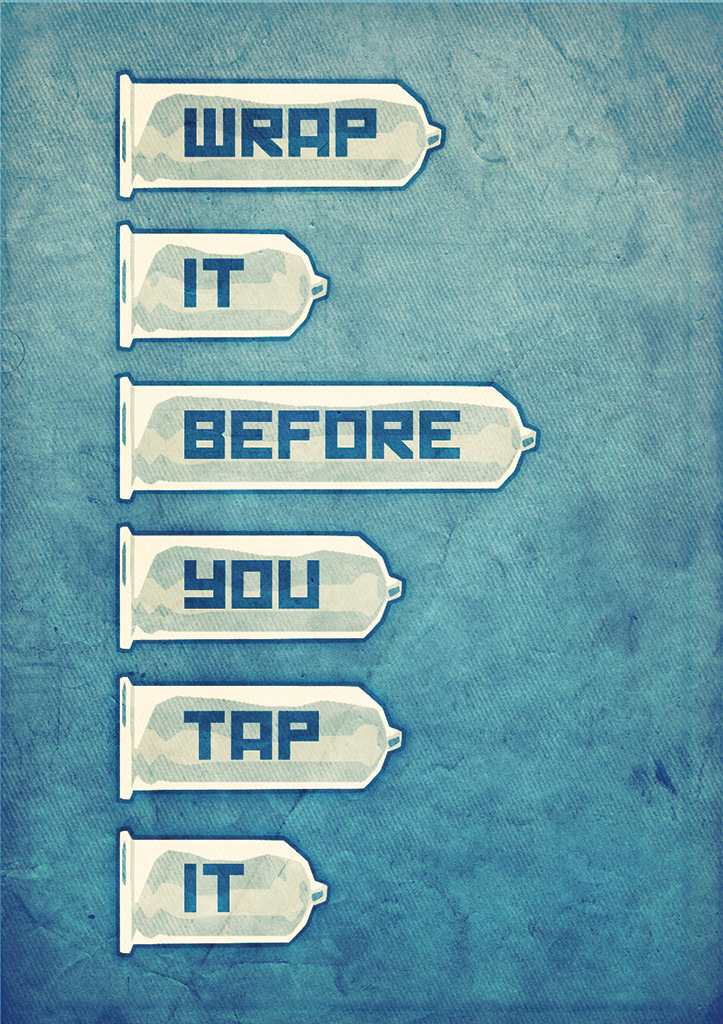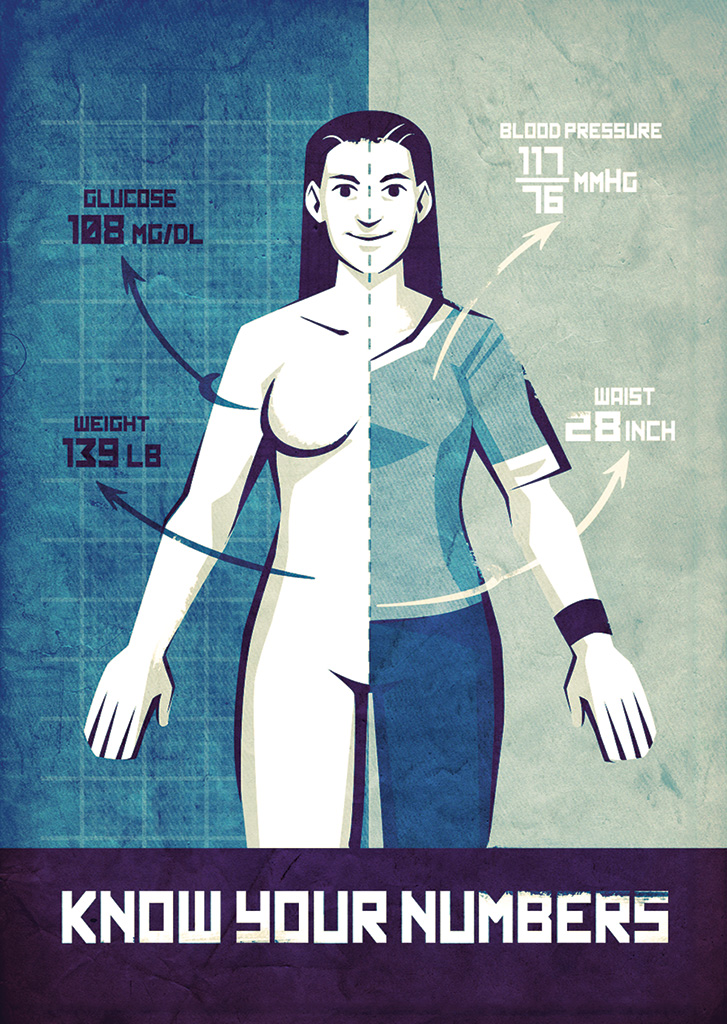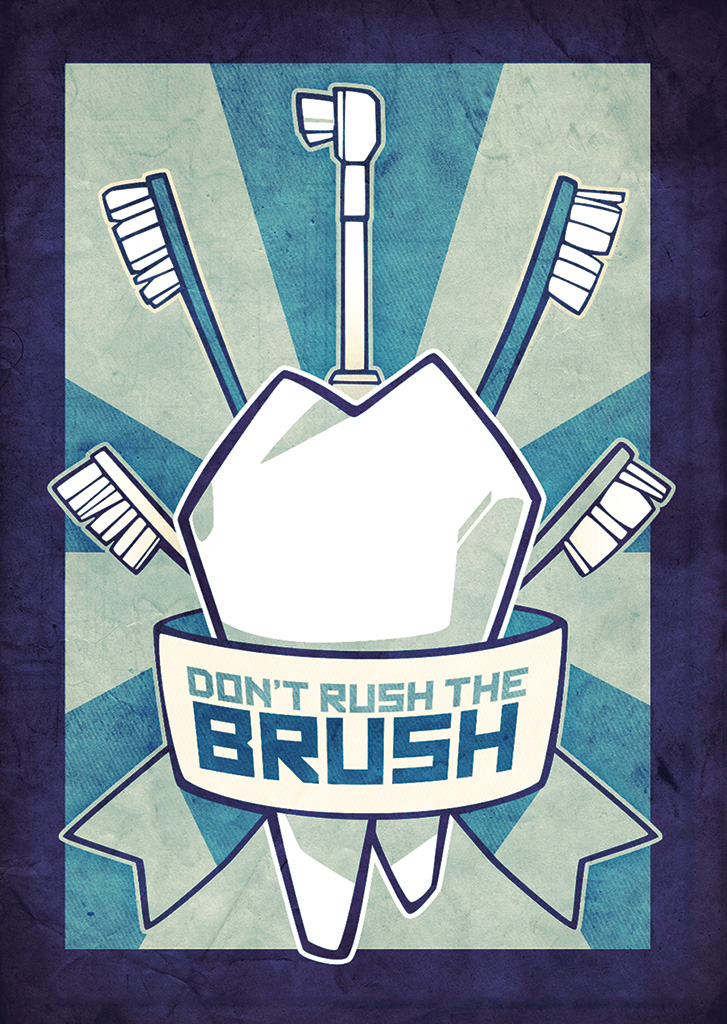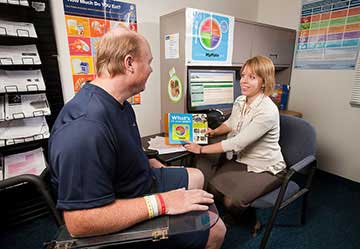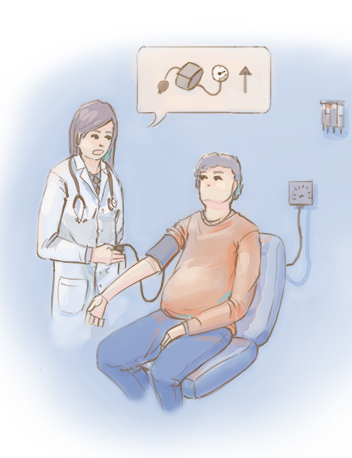CARE
PLANS
PART 1: Overview
“Self-care in health is the new black.
We’re digitally DIY’ing life, scheduling our own travel and booking restaurant tables, curating our photographs and trading stocks. People are morphing into health consumers, and that requires health engagement which means getting smart about our bodies, our selves, our numbers, and our treatment options. CarePlans is an on-ramp to shared and sound decision-making for self-health.”
- Jane Sarasohn-Kahn, MA (Econ.), MHSA
Health Economist, Advisor, Trend Weaver
THINK-Health, Health Populi blog, Huffington Post
Healthy Living
A care plan is a synthesis of all plans of care produced by you and your providers to manage your health day to day. It serves as a continuous, conceptual framework shared by all of your care team members to guide your care.1,2,3
What's in a Care Plan
Care plans usually consist of these universal components1,2:
Patient Summary
Summarized history includes basic information such as demographics (name, age, contact info, ethnic or religious beliefs), health metrics (weight, blood pressure, etc), allergies, or medications and therapies. It can also contain past health history such as past hospitalizations.1
Health Concerns
These can include a variety of issues such as medical, surgical, behavioral, cognition, mood, environmental factors, financial, and more.2,4
Goals
Goals are used to measure progress. They give a care plan direction and are the first indicator of what path a patient is taking to manage their health concerns. Care plans are typically made up of a few high level goals that consist of many smaller short-term goals.1,2
Instructions & Interventions
Information or directions given to you and your other providers make up the instructions of your care plan. This can include how to care for a condition, what to do at home, when to call for help, or changes to the medication. Interventions are actions taken, most often by you, to work toward achieving care plan goals. This can include symptom and medication management, community/social services, and removal of barriers to success.1,2,5
Review
You and your provider evaluate the effectiveness of the care plan, and make adjustments where appropriate.1
Care Team
Your care team is everyone who manages or provides care, including yourself. Medical practitioners, nurses, social workers, and caregivers are just a few examples.2,7
While a general consensus is being reached on the universal components of a care plan, the actual content that these components address is still largely unstandardized. In the future, there will be always-evolving care plan templates with evidence-based content for the full spectrum of human conditions. For now, we can categorize the areas of concern into commonly used categories.
How Care Plans Work
A care plan applies the different areas of concern (i.e. physical activity, nutrition, etc.) across the universal components (i.e. goals, instructions, etc.). There is a baseline care plan that exists for general healthy living, and this baseline becomes more customized to a person as more information is collected. Factors such as sex, age, ethnicity, activities, conditions, etc. influence what content goes in a care plan, and how important those areas are to the person.
Explore how the care plan changes these factors across the three individuals below.

Patient Summary
Isabella is a 13 year old, active 7th grader who plays the flute and is a defender on the girls soccer team. Isabella snacks throughout the day and she does not like meat very much.Health Concerns (Choose 2)
Care Team
Mom, Dad, Pediatrician, Coach
| Goals | Instructions & Interventions | Review | |
| Nutrition |
Develop and maintain healthy eating habits and routines. |
Eat breakfast every day to boosts the body's metabolism, improve energy and alertness, and reduce risk of obesity. |
Review eating habits next check-up. |
| Physical Activity |
Maintain regular physical activity. |
Get at least 60 minutes of mostly aerobic exercise. |
Review weight trend and adjust plan accordingly. |
| Sleep |
Get enough sleep. |
Prioritize 8-10 hours of sleep for active, growing bodies. |
Assess general morning energy levels at next check-up. |
| Mental Resilience | |||
| Managing Medication |
Ensure vaccinations are received. |
Schedule next HPV vaccination in 3 months. |
Assess upcoming vaccinations. |
| Sexual Health | |||
| Cessation of Bad Habits |
Get less screen time. |
Spend less than 2 hours of continuous time on screens - try timers, parental controls. |
Assess for barriers to achieving goal screen time. |
| Tracking Vitals |
Track height and weight. |
Track height and weight once a month with phone application or pencil and paper. |
Schedule yearly physical exams with pediatrician. |
| Managing ADLs |
Remembering to brush teeth daily. |
Leave a reminder on the bathroom sink, or set an alarm. |
Nutrition
Develop and maintain healthy eating habits and routines.
Promote bone strength and growth.
Eat breakfast every day to boosts the body's metabolism, improve energy and alertness, and reduce risk of obesity.
Avoid junk and processed foods.
Get 4 servings of calcium every day for bone growth and strength.
Consume vitamin D enriched milk, eggs, and fatty fish like salmon to improve absorption of calcium.
Review eating habits next check-up.
Assess for any barriers to nutrition plan adherence.
Physical Activity
Maintain regular physical activity.
Strengthen bones and muscles.
Ensure adequate time for rest and relaxation.
Get at least 60 minutes of mostly aerobic exercise.
Get muscle and bone strengthening exercise 3 days a week.
Review weight trend and adjust plan accordingly.
Assess for barriers to exercise plan adherence.
Sleep
Get enough sleep.
Get on a regular sleep schedule.
Prioritize 8-10 hours of sleep for active, growing bodies.
Avoid sleeping in weekend to maintain a consistent routine.
Stop using computer, phone, and TV 1 hour before bed for a better quality sleep.
Assess general morning energy levels at next check-up.
Mental Resilience
Managing Medication
Ensure vaccinations are received.
Schedule next HPV vaccination in 3 months.
Get influenza vaccine in the fall.
Assess upcoming vaccinations.
Sexual Health
Cessation of Bad Habits
Get less screen time.
Reduce bad snacking behaviors.
Spend less than 2 hours of continuous time on screens - try timers, parental controls.
Keep only healthy snacks (fruits, vegetables, nuts, whole grains) in the house.
Assess for barriers to achieving goal screen time.
Review satisfaction/adherence to snacking goals.
Tracking Vitals
Track height and weight.
Track height and weight once a month with phone application or pencil and paper.
Schedule yearly physical exams with pediatrician.
Test regularly for anemia.
Managing ADLs
Remembering to brush teeth daily.
Leave a reminder on the bathroom sink, or set an alarm.

Patient Summary
Reggie is a 35 year old, successful, driven accountant who works 8am-6pm in downtown Boston and commutes home to a nearby suburb. He enjoys gaming and occasionally going out to drink at bars or clubs with friends during the week. On the weekends, Reggie likes to swim at the local fitness center or go on walks with his labradoodle. Reggie is in long distance relationship, and sees his boyfriend about once every 2 weeks.Health Concerns (Choose 2)
Care Team
Primary Care Physician, Boyfriend, Mother, Friends
| Goals | Instructions & Interventions | Review | |
| Nutrition |
Eat a healthier, plant-based diet. |
Eat more vegetables, fruit, nuts, beans, and whole grains, less meat. |
Review eating habits next check-up. |
| Physical Activity |
Sit less and maintain current body weight by staying active. |
Get 30 minutes of physical activity a day. |
Review weight trend and adjust plan accordingly. |
| Sleep |
Feel more awake in the mornings for work. |
Turn the games/computer off at least an hour before bed. |
Review general morning energy levels a month from now. |
| Mental Resilience |
Reduce the stress from partner often being absent. |
Call partner by next month, and communicate the reason for the stress. |
Review mental stress condition with a care provider. |
| Managing Medication |
Get vitamin D levels up to the normal range to lower the risk of depression. |
Take 2000IUs of vitamin D3 every day. |
Review vitamin D levels every 3 months. |
| Sexual Health |
Have an understanding of personal sexual health status. |
Conduct monthly self-exams for testicular cancer. |
Review results from HIV screening. |
| Cessation of Bad Habits |
Reduce alcohol intake by half of current consumption. |
To limit alcohol consumption, drink water for every other friend meeting. |
Review general alcohol consumption levels. |
| Tracking Vitals |
Be able to consistently keep track of current body weight. |
Place the bathroom scale in front of the counter as a daily reminder to check body weight. |
Review trends in body weight with a primary care provider. |
| Managing ADLs |
Manage time to bike to work in the mornings. |
Set an alarm to wake up half an hour earlier than usual. |
Review biking frequency in the commute. |
Nutrition
Eat a healthier, plant-based diet.
Eat more vegetables, fruit, nuts, beans, and whole grains, less meat.
Avoid red meats, processed meats, or cured meats.
Eat 2-3 servings to fish a week (for the fish oils).
Replace the fatty snacks consumed when gaming, with a fresh fruit.
Avoid the free high-fat snack foods at the accounting firm.
Meatless Mondays.
Review eating habits next check-up.
Assess for any barriers to nutrition plan adherence.
Physical Activity
Sit less and maintain current body weight by staying active.
Get 30 minutes of physical activity a day.
Join a local swim team that meets twice a week.
Use a bike for the 30 minute work commute.
Find alternate bike paths to stay motivated and interested in the exercise.
Review weight trend and adjust plan accordingly.
Assess for barriers to exercise plan adherence.
Sleep
Feel more awake in the mornings for work.
Turn the games/computer off at least an hour before bed.
Go to bed by midnight to sleep at least 8 hours for the 8am job.
Review general morning energy levels a month from now.
Mental Resilience
Reduce the stress from partner often being absent.
Call partner by next month, and communicate the reason for the stress.
If interest in hobbies are still lacking two weeks from now, seek appointment with specialized mental health professional.
Focus on meeting with friends more often.
Review mental stress condition with a care provider.
Managing Medication
Get vitamin D levels up to the normal range to lower the risk of depression.
Take 2000IUs of vitamin D3 every day.
Place daily vitamins by the coffee maker to incorporate them into daily routine.
Review vitamin D levels every 3 months.
Sexual Health
Have an understanding of personal sexual health status.
Understand how to avoid HIV infection and other sexually transmitted diseases (STDs).
Conduct monthly self-exams for testicular cancer.
Make appointment this month with primary provider for HIV screening.
Use condoms to form a barrier between the penis and anus, or mouth.
Review results from HIV screening.
Cessation of Bad Habits
Reduce alcohol intake by half of current consumption.
To limit alcohol consumption, drink water for every other friend meeting.
Review general alcohol consumption levels.
Tracking Vitals
Be able to consistently keep track of current body weight.
Place the bathroom scale in front of the counter as a daily reminder to check body weight.
Review trends in body weight with a primary care provider.
Managing ADLs
Manage time to bike to work in the mornings.
Set an alarm to wake up half an hour earlier than usual.
Review biking frequency in the commute.

Patient Summary
Donna is a 68 year old, retired bank clerk living in downtown Chicago with her husband. She enjoys doing crossword puzzles and watching TV at night, and therefore doesn't leave the apartment much. Donna often feels isolated and lonely, and suffers from chronic neck pain from sitting for long periods of time.Health Concerns (Choose 2)
Care Team
Primary Care Physician, Daughter, Husband, Neighbor
| Goals | Instructions & Interventions | Review | |
| Nutrition |
Eat a healthier, plant-based diet. |
Eat more vegetables, fruit, nuts, beans, and whole grains, less meat. |
Review eating habits next month. |
| Physical Activity |
Get more active. |
Begin with a local community center that offers exercise classes for seniors and has sessions at least 3 times a week. |
Review mobility and movement changes 4 months from now. |
| Sleep |
Reduce the time it takes to get to sleep. |
Buy soft earplugs for daily use to reduce noise coming from the windows. |
Review quality of sleep next month and consider a sleep aid. |
| Mental Resilience |
Increase social interaction and community involvement. |
Join a local community organization to social engage with people around a hobby. |
Review satisfaction with community involvement or barriers to social interaction. |
| Managing Medication |
Improve vitamin B6, B12, and Folate deficiencies by taking supplements regularly. |
Improve vitamin B6, B12, and Folate deficiencies by taking supplements regularly. |
Test vitamin levels every 6 months and adjust dosage accordingly. |
| Sexual Health |
Increase sexual activity with husband. |
Consider having sex in the mornings, or at times of day when both parties are most rested. |
Review satisfaction with sexual activity or barriers to satisfaction. |
| Cessation of Bad Habits |
Reduce unhealthy snacking when bored. |
Keep only health snacks (fruits, vegetables, nuts) in the house. |
Review quality of neck posture in 6 months, refer to Orthopedic if no improvement. |
| Tracking Vitals |
Track weight, blood pressure, cholesterol, and blood sugar levels to screen for common chronic conditions. |
Schedule next annual check-up. |
Review results from check-up with a care provider to determine additional steps that may be needed. |
| Managing ADLs |
Prevent future dental problems by prioritizing regular dental hygiene. |
Set a daily automatic alarm as a reminder to brush teeth. A digital device, a clock, or watch reminder may all be used. |
Review dental health in 6 months. |
Nutrition
Eat a healthier, plant-based diet.
Eat more vegetables, fruit, nuts, beans, and whole grains, less meat.
Avoid red meats, processed meats, or cured meats.
Avoid processed meals by signing up for Meals on Wheels delivery once a week to help deliver healthier groceries to cook with.
Review eating habits next month.
Review any barriers to nutrition plan adherence.
Physical Activity
Get more active.
Begin with a local community center that offers exercise classes for seniors and has sessions at least 3 times a week.
Review mobility and movement changes 4 months from now.
Sleep
Reduce the time it takes to get to sleep.
Buy soft earplugs for daily use to reduce noise coming from the windows.
Turn off all TV lighting at least an hour before sleeping.
Review quality of sleep next month and consider a sleep aid.
Mental Resilience
Increase social interaction and community involvement.
Join a local community organization to social engage with people around a hobby.
Review satisfaction with community involvement or barriers to social interaction.
Managing Medication
Improve vitamin B6, B12, and Folate deficiencies by taking supplements regularly.
Improve vitamin B6, B12, and Folate deficiencies by taking supplements regularly.
Test vitamin levels every 6 months and adjust dosage accordingly.
Sexual Health
Increase sexual activity with husband.
Consider having sex in the mornings, or at times of day when both parties are most rested.
Review satisfaction with sexual activity or barriers to satisfaction.
Cessation of Bad Habits
Reduce unhealthy snacking when bored.
Improve posture to reduce neck pain and stiffness.
Keep only health snacks (fruits, vegetables, nuts) in the house.
Find hobbies that occupy the hands to fill periods of boredom.
Purchase a chair with strong ergonomic back support to prevent hunching forward when watching TV at night.
Purchase neck support pillow for daily use when sleeping.
Review quality of neck posture in 6 months, refer to Orthopedic if no improvement.
Tracking Vitals
Track weight, blood pressure, cholesterol, and blood sugar levels to screen for common chronic conditions.
Schedule next annual check-up.
Review results from check-up with a care provider to determine additional steps that may be needed.
Managing ADLs
Prevent future dental problems by prioritizing regular dental hygiene.
Set a daily automatic alarm as a reminder to brush teeth. A digital device, a clock, or watch reminder may all be used.
Review dental health in 6 months.

Patient Summary
Isabella is a 13 year old, active 7th grader who plays the flute and is a defender on the girls soccer team. Isabella snacks throughout the day and she does not like meat very much.Health Concerns (Choose 2)
Care Team
Mom, Dad, Pediatrician, Coach
| Goals | Instructions & Interventions | Review | |
| Nutrition |
Develop and maintain healthy eating habits and routines. |
Eat breakfast every day to boosts the body's metabolism, improve energy and alertness, and reduce risk of obesity. |
Review eating habits next check-up. |
| Physical Activity |
Maintain regular physical activity. |
Get at least 60 minutes of mostly aerobic exercise. |
Review weight trend and adjust plan accordingly. |
| Sleep |
Get enough sleep. |
Prioritize 8-10 hours of sleep for active, growing bodies. |
Assess general morning energy levels at next check-up. |
| Mental Resilience | |||
| Managing Medication |
Ensure vaccinations are received. |
Schedule next HPV vaccination in 3 months. |
Assess upcoming vaccinations. |
| Sexual Health | |||
| Cessation of Bad Habits |
Get less screen time. |
Spend less than 2 hours of continuous time on screens - try timers, parental controls. |
Assess for barriers to achieving goal screen time. |
| Tracking Vitals |
Track height and weight. |
Track height and weight once a month with phone application or pencil and paper. |
Schedule yearly physical exams with pediatrician. |
| Managing ADLs |
Remembering to brush teeth daily. |
Leave a reminder on the bathroom sink, or set an alarm. |
Nutrition
Develop and maintain healthy eating habits and routines.
Promote bone strength and growth.
Eat breakfast every day to boosts the body's metabolism, improve energy and alertness, and reduce risk of obesity.
Avoid junk and processed foods.
Get 4 servings of calcium every day for bone growth and strength.
Consume vitamin D enriched milk, eggs, and fatty fish like salmon to improve absorption of calcium.
Review eating habits next check-up.
Assess for any barriers to nutrition plan adherence.
Physical Activity
Maintain regular physical activity.
Strengthen bones and muscles.
Ensure adequate time for rest and relaxation.
Get at least 60 minutes of mostly aerobic exercise.
Get muscle and bone strengthening exercise 3 days a week.
Review weight trend and adjust plan accordingly.
Assess for barriers to exercise plan adherence.
Sleep
Get enough sleep.
Get on a regular sleep schedule.
Prioritize 8-10 hours of sleep for active, growing bodies.
Avoid sleeping in weekend to maintain a consistent routine.
Stop using computer, phone, and TV 1 hour before bed for a better quality sleep.
Assess general morning energy levels at next check-up.
Mental Resilience
Managing Medication
Ensure vaccinations are received.
Schedule next HPV vaccination in 3 months.
Get influenza vaccine in the fall.
Assess upcoming vaccinations.
Sexual Health
Cessation of Bad Habits
Get less screen time.
Reduce bad snacking behaviors.
Spend less than 2 hours of continuous time on screens - try timers, parental controls.
Keep only healthy snacks (fruits, vegetables, nuts, whole grains) in the house.
Assess for barriers to achieving goal screen time.
Review satisfaction/adherence to snacking goals.
Tracking Vitals
Track height and weight.
Track height and weight once a month with phone application or pencil and paper.
Schedule yearly physical exams with pediatrician.
Test regularly for anemia.
Managing ADLs
Remembering to brush teeth daily.
Leave a reminder on the bathroom sink, or set an alarm.

Patient Summary
Reggie is a 35 year old, successful, driven accountant who works 8am-6pm in downtown Boston and commutes home to a nearby suburb. He enjoys gaming and occasionally going out to drink at bars or clubs with friends during the week. On the weekends, Reggie likes to swim at the local fitness center or go on walks with his labradoodle. Reggie is in long distance relationship, and sees his boyfriend about once every 2 weeks.Health Concerns (Choose 2)
Care Team
Primary Care Physician, Boyfriend, Mother, Friends
| Goals | Instructions & Interventions | Review | |
| Nutrition |
Eat a healthier, plant-based diet. |
Eat more vegetables, fruit, nuts, beans, and whole grains, less meat. |
Review eating habits next check-up. |
| Physical Activity |
Sit less and maintain current body weight by staying active. |
Get 30 minutes of physical activity a day. |
Review weight trend and adjust plan accordingly. |
| Sleep |
Feel more awake in the mornings for work. |
Turn the games/computer off at least an hour before bed. |
Review general morning energy levels a month from now. |
| Mental Resilience |
Reduce the stress from partner often being absent. |
Call partner by next month, and communicate the reason for the stress. |
Review mental stress condition with a care provider. |
| Managing Medication |
Get vitamin D levels up to the normal range to lower the risk of depression. |
Take 2000IUs of vitamin D3 every day. |
Review vitamin D levels every 3 months. |
| Sexual Health |
Have an understanding of personal sexual health status. |
Conduct monthly self-exams for testicular cancer. |
Review results from HIV screening. |
| Cessation of Bad Habits |
Reduce alcohol intake by half of current consumption. |
To limit alcohol consumption, drink water for every other friend meeting. |
Review general alcohol consumption levels. |
| Tracking Vitals |
Be able to consistently keep track of current body weight. |
Place the bathroom scale in front of the counter as a daily reminder to check body weight. |
Review trends in body weight with a primary care provider. |
| Managing ADLs |
Manage time to bike to work in the mornings. |
Set an alarm to wake up half an hour earlier than usual. |
Review biking frequency in the commute. |
Nutrition
Eat a healthier, plant-based diet.
Eat more vegetables, fruit, nuts, beans, and whole grains, less meat.
Avoid red meats, processed meats, or cured meats.
Eat 2-3 servings to fish a week (for the fish oils).
Replace the fatty snacks consumed when gaming, with a fresh fruit.
Avoid the free high-fat snack foods at the accounting firm.
Meatless Mondays.
Review eating habits next check-up.
Assess for any barriers to nutrition plan adherence.
Physical Activity
Sit less and maintain current body weight by staying active.
Get 30 minutes of physical activity a day.
Join a local swim team that meets twice a week.
Use a bike for the 30 minute work commute.
Find alternate bike paths to stay motivated and interested in the exercise.
Review weight trend and adjust plan accordingly.
Assess for barriers to exercise plan adherence.
Sleep
Feel more awake in the mornings for work.
Turn the games/computer off at least an hour before bed.
Go to bed by midnight to sleep at least 8 hours for the 8am job.
Review general morning energy levels a month from now.
Mental Resilience
Reduce the stress from partner often being absent.
Call partner by next month, and communicate the reason for the stress.
If interest in hobbies are still lacking two weeks from now, seek appointment with specialized mental health professional.
Focus on meeting with friends more often.
Review mental stress condition with a care provider.
Managing Medication
Get vitamin D levels up to the normal range to lower the risk of depression.
Take 2000IUs of vitamin D3 every day.
Place daily vitamins by the coffee maker to incorporate them into daily routine.
Review vitamin D levels every 3 months.
Sexual Health
Have an understanding of personal sexual health status.
Understand how to avoid HIV infection and other sexually transmitted diseases (STDs).
Conduct monthly self-exams for testicular cancer.
Make appointment this month with primary provider for HIV screening.
Use condoms to form a barrier between the penis and anus, or mouth.
Review results from HIV screening.
Cessation of Bad Habits
Reduce alcohol intake by half of current consumption.
To limit alcohol consumption, drink water for every other friend meeting.
Review general alcohol consumption levels.
Tracking Vitals
Be able to consistently keep track of current body weight.
Place the bathroom scale in front of the counter as a daily reminder to check body weight.
Review trends in body weight with a primary care provider.
Managing ADLs
Manage time to bike to work in the mornings.
Set an alarm to wake up half an hour earlier than usual.
Review biking frequency in the commute.

Patient Summary
Donna is a 68 year old, retired bank clerk living in downtown Chicago with her husband. She enjoys doing crossword puzzles and watching TV at night, and therefore doesn't leave the apartment much. Donna often feels isolated and lonely, and suffers from chronic neck pain from sitting for long periods of time.Health Concerns (Choose 2)
Care Team
Primary Care Physician, Daughter, Husband, Neighbor
| Goals | Instructions & Interventions | Review | |
| Nutrition |
Eat a healthier, plant-based diet. |
Eat more vegetables, fruit, nuts, beans, and whole grains, less meat. |
Review eating habits next month. |
| Physical Activity |
Get more active. |
Begin with a local community center that offers exercise classes for seniors and has sessions at least 3 times a week. |
Review mobility and movement changes 4 months from now. |
| Sleep |
Reduce the time it takes to get to sleep. |
Buy soft earplugs for daily use to reduce noise coming from the windows. |
Review quality of sleep next month and consider a sleep aid. |
| Mental Resilience |
Increase social interaction and community involvement. |
Join a local community organization to social engage with people around a hobby. |
Review satisfaction with community involvement or barriers to social interaction. |
| Managing Medication |
Improve vitamin B6, B12, and Folate deficiencies by taking supplements regularly. |
Improve vitamin B6, B12, and Folate deficiencies by taking supplements regularly. |
Test vitamin levels every 6 months and adjust dosage accordingly. |
| Sexual Health |
Increase sexual activity with husband. |
Consider having sex in the mornings, or at times of day when both parties are most rested. |
Review satisfaction with sexual activity or barriers to satisfaction. |
| Cessation of Bad Habits |
Reduce unhealthy snacking when bored. |
Keep only health snacks (fruits, vegetables, nuts) in the house. |
Review quality of neck posture in 6 months, refer to Orthopedic if no improvement. |
| Tracking Vitals |
Track weight, blood pressure, cholesterol, and blood sugar levels to screen for common chronic conditions. |
Schedule next annual check-up. |
Review results from check-up with a care provider to determine additional steps that may be needed. |
| Managing ADLs |
Prevent future dental problems by prioritizing regular dental hygiene. |
Set a daily automatic alarm as a reminder to brush teeth. A digital device, a clock, or watch reminder may all be used. |
Review dental health in 6 months. |
Nutrition
Eat a healthier, plant-based diet.
Eat more vegetables, fruit, nuts, beans, and whole grains, less meat.
Avoid red meats, processed meats, or cured meats.
Avoid processed meals by signing up for Meals on Wheels delivery once a week to help deliver healthier groceries to cook with.
Review eating habits next month.
Review any barriers to nutrition plan adherence.
Physical Activity
Get more active.
Begin with a local community center that offers exercise classes for seniors and has sessions at least 3 times a week.
Review mobility and movement changes 4 months from now.
Sleep
Reduce the time it takes to get to sleep.
Buy soft earplugs for daily use to reduce noise coming from the windows.
Turn off all TV lighting at least an hour before sleeping.
Review quality of sleep next month and consider a sleep aid.
Mental Resilience
Increase social interaction and community involvement.
Join a local community organization to social engage with people around a hobby.
Review satisfaction with community involvement or barriers to social interaction.
Managing Medication
Improve vitamin B6, B12, and Folate deficiencies by taking supplements regularly.
Improve vitamin B6, B12, and Folate deficiencies by taking supplements regularly.
Test vitamin levels every 6 months and adjust dosage accordingly.
Sexual Health
Increase sexual activity with husband.
Consider having sex in the mornings, or at times of day when both parties are most rested.
Review satisfaction with sexual activity or barriers to satisfaction.
Cessation of Bad Habits
Reduce unhealthy snacking when bored.
Improve posture to reduce neck pain and stiffness.
Keep only health snacks (fruits, vegetables, nuts) in the house.
Find hobbies that occupy the hands to fill periods of boredom.
Purchase a chair with strong ergonomic back support to prevent hunching forward when watching TV at night.
Purchase neck support pillow for daily use when sleeping.
Review quality of neck posture in 6 months, refer to Orthopedic if no improvement.
Tracking Vitals
Track weight, blood pressure, cholesterol, and blood sugar levels to screen for common chronic conditions.
Schedule next annual check-up.
Review results from check-up with a care provider to determine additional steps that may be needed.
Managing ADLs
Prevent future dental problems by prioritizing regular dental hygiene.
Set a daily automatic alarm as a reminder to brush teeth. A digital device, a clock, or watch reminder may all be used.
Review dental health in 6 months.
How Care Plans Started
-
31st BC-15th Century
Much of medical history was focused in reactive care, rather than taking preventative measures for the individual’s health. In the middle ages especially, the idea of preventative care could also have been stunted by the explanations of medical phenomena connected to spirituality and religious belief systems. Preceding modern medicine, most of the care regimens provided to patients were focused on either external symptoms, or a spiritual or magical basis.54
-
6th-19th Century
The 16th to 19th century was a period of heavy scientific discovery, leading to the transition of supernatural explanations to natural explanations for disease and illness.55 People began to see illness as something that could eventually be eradicated, and saw health as a natural state of the body that should be maintained and protected, further stepping away from traditional notions of supernatural explanations or divine punishment.56,57
-
1930s
The 1930s marked the entry of clinically driven care plans into the nursing field. When stays in the hospital were longer, there was time to implement written plans.58 Nursing team leads would also use care plans as a guide for the less-educated members of the team.59
-
1970s
There were many fields involved in the emergence oflife care planningduring this time. The converging principles of the fields of experimental analysis of behavior(EAB),developmental psychology, andcase managementestablished life care planning factors: a summative statement, communication tool, preventative planning, basic components, individualized plans, and needs come first ideology.60
-
1980s
Starting in the 1980s and in the following decades, life care planners were involved in consultations with insurance carriers and also with attorneys involved in litigation. Life care planning played a huge initial role in the field of litigation. It has since expanded into elder care, chronic illness and discharge planning. It has also expanded the number and types of professions who can each be involved in a part of care planning.61
-
2000s
The breadth of professionals and care providers within life care planning expanded, with individuals coming from rehabilitation counseling, rehabilitation nursing, physiatry, and case management professions. Both paper based and digital technology based care plans were regularly being used by patients and their care providers. A proliferation of digital technology based care plans also began to take hold in later years. Healthtap, Amwell, Better., HelloDoctor, HealthKit, My Chart, Practice Fusion, Health Vault, AskMD, Happify, and Healarium are all more well known examples.61
-
Current
As of January 2015, CMS transitioned Medicare to the more quality-based practice of reinbursing for care management of eligible patients with 2 or more chronic conditions. Other private insurance companies are beginning to follow suit to prioritize consistent, preventative care facilitated by patient-accessible care plans. is has encouraged the growth of digital care planning services that aid chronic care management, such as CareSync, Wellframe, Bridge Patient Portal, and others. Many providers also utilize physical care planning materials like handouts and pamphlets for specific conditions. e pamphlet example below is a care plan for controlling high cholesterol. Inside are education about the diagnosis, room for high-level goal setting, slots to insert Care Cards for individal step goals, and the contractual agreement of the care team to better the patient’s health.5

Nursing
Virginia Henderson, “The Nightingale of Modern Nursing”, was a clinically recognized nurse and instructor in the 1900s. She designed the basic nursing curriculum for the National League for Nursing that taught a patient- centered approach focused on nursing problems rather than medical diagnoses.65
Life Care Planning
Life care plans started to develop in the 1970s after the convergence of research within several fields. Catastrophic disability research in the mid 70s paved the way for the modern life care plan.62,63
Experimental Analysis of Behavior
This subspecialty of psychology provided research in charting behavioral changes over long periods of time. These behaviors could then be deconstructed into discrete actions that could be analyzed by the researcher. The technique of charting provided the case management professional with a tool in identifying individual components of care for a specific patient.64
Developmental Psychology
Developmental psychology provided a practical role in the development of life care planning. Through conducting research on children with cerebral palsy, it was discovered that the overwhelming complexity of the needs of the patient required that a structured reference tool be provided as a roadmap of care. This provided the beginning of the framework for life care planning.60
Case Management
Case management is the collaborative process of assessing, planning, implementing, and evaluating the options and services for a person’s health needs. In the early 1970s, the case management field began seeing the value of a detailed life care plan and became more involved with providing integrated services for those with long-term medical needs.61
Litigation
Beginning in the 1980s, Life care plans began to gain greater acknowledgement through the help of the litigation field in cases involving debilitating injury. Damages in Tort Actions (1981) was the first published reference to life care planning through the analysis of personal injury cases.60
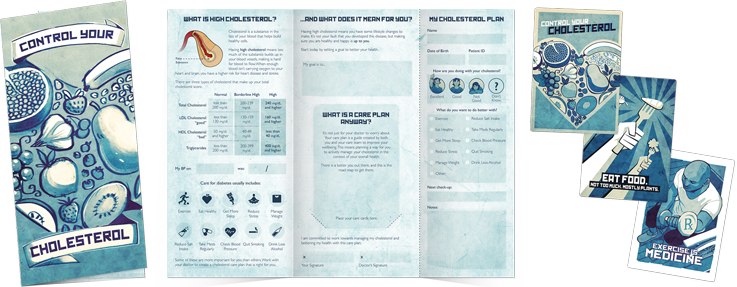
Authors
Contributors

Web Designer & Developer
Yanyang Zhou

Web Designer & Developer
Jennifer Patel
@catamariface

GoInvo, MIT
Juhan Sonin
@jsonin

University of Missouri | toomanyclicks.com
Jeff Belden, MD
@jeffbelden

University of Michigan
Joyce Lee, MD, MPH
@joyclee

THINK-Health | Health Populi blog | Huffington Post
Jane Sarasohn-Kahn, MA, MHSA
@healthythinker

Healthcare Provocateur
Harry Sleeper
@harrysleeper
References
- 1. “Key Elements to Include in a Coordinated Care Plan”. OMA. (2014, June). Retrieved November/December, 2015, from https://www.oma.org/Resources/Documents/CoordinatedCarePlan_June2014.pdf
- 2. “LCC Longitudinal Care Plan (LCP) SWG”. S&I Framework. Retrieved from http://wiki.siframework.org/LCC+Longitudinal+Care+Plan+%28LCP%29+SWG?responseToken=09cf7263041efc0aaad547d5b2bd401fd
- 3. “NHS Guide to long-term conditions and self care: What is a care plan?” (n.d.).Retrieved December 21, 2015, from http://www.nhs.uk/Planners/Yourhealth/Pages/Careplan.aspx
- 4. “Stage 2 Meaningful Use Core Measures”. (2015, August). Retrieved from https://www.cms.gov/Regulations-and-Guidance/Legislation/EHRIncentivePrograms/downloads/Stage2_EPCore_15_SummaryCare.pdf
- 5. United States, Department of Health and Human Services. “Chronic Care Management Services”. (2015, May). Centers for Medicare and Medicaid Services. Retrieved from https://www.cms.gov/Outreach-and-Education/Medicare-Learning-Network-MLN/MLNProducts/Downloads/ChronicCareManagement.pdf
- 6. “Give Peace of Mind: Advance Care Planning”. (2014, Mar). Centers for Disease Control and Prevention. Retrieved 2016, Jan. from http://www.cdc.gov/aging/advancecareplanning/
- 7. “Your Healthcare Team”. URMC (2016). Retrieved 2016, Jan. from https://www.urmc.rochester.edu/strong-memorial/patients-families/health-care-team.aspx
- 8. “Stage 2 Eligible Professional Meaningful Use Core Measures Measure 15 of 17”. (2015, Aug). CMS. Retrieved from https://www.cms.gov/Regulations-and-Guidance/Legislation/EHRIncentivePrograms/downloads/Stage2_EPCore_15_SummaryCare.pdf
- 9. GoInvo. “Care Cards” (2016). Retrieved from www.carecards.me
- 10. “Depression”. National Institutes of Health. Retrieved from https://www.nimh.nih.gov/health/topics/depression/index.shtml#part_145399
- 11. “Depression”. (2016). National Alliance on Mental Illness. Retrieved from https://www.nami.org/Learn-More/Mental-Health-Conditions/Depression/Treatment
- 12. “Depression (Major Depressive Disorder)”. (2015, Jul. 22). Mayo Clinic. Retrieved from http://www.mayoclinic.org/diseases-conditions/depression/basics/lifestyle-home-remedies/con-20032977
- 13. “How to Fight Depression Fatigue”. Everyday Health. http://www.everydayhealth.com/hs/major-depression-living-well/fight-depression-fatigue/
- 14. “Emotional Eating cont’d”. (2014, Dec. 11). MedicineNet. Retrieved from http://www.medicinenet.com/emotional_eating/page4.htm
- 15. “Ligament Tear: A Closer Look”. (2016) Kansas City Bone and Joint Clinic. http://www.kcbj.com/knee/typical-knee-conditions/ligament-tear-acl-mcl-lcl-and-pcl/
- 16. “Patient Education Program: Surgical Recovery.” (2016) Emory Healthcare. http://www.emoryhealthcare.org/acl-program/surgical-recovery/acl-rehab-expectations.html
- 17. http://www.moveforwardpt.com/symptomsconditionsdetail.aspx?cid=d8e73ca8-71f4-48a7-92f8-675bca38232c#.VmtPJBorLa4
- 18. “Choosing What, How Much, and When to Eat”. (2016). American Diabetes Association. Retrieved from http://www.diabetes.org/living-with-diabetes/recently-diagnosed/where-do-i-begin/choosing-what-to-eat.html
- 19. “Getting Active”. (2016) American Diabetes Association. Retrieved from http://www.diabetes.org/living-with-diabetes/recently-diagnosed/where-do-i-begin/getting-active.html
- 20. “What I need to know about diabetes medicines”. NIH: National Institute of Diabetes and Digestive Kidney Disease. http://diabetes.niddk.nih.gov/dm/pubs/medicines_ez/
- 21. “Step 3: Manage your diabetes”. NIH: National Institute of Diabetes and Digestive Kidney Disease. Retrieved from: http://ndep.nih.gov/i-have-diabetes/manageyourdiabetes.aspx
- 22. “Obesity: Treatment an Drugs”. (2015, Jun. 10) Mayo Clinic. http://www.mayoclinic.org/diseases-conditions/obesity/basics/treatment/con-20014834
- 23. “Slideshow: Low-Calorie-Density Foods for Weight Loss”. (2016). Mayo Clinic. Retrieved from http://www.mayoclinic.org/healthy-lifestyle/weight-loss/multimedia/low-calorie-foods/sls-20076175?s=1
- 24. “Childhood Obesity Facts”. (2015, Aug. 27). Centers for Disease Control and Prevention. Retrieved from http://www.cdc.gov/healthyschools/obesity/facts.htm
- 25. “Prevention and treatment of high blood pressure”. (2016). American Heart Association. Retrieved from http://www.heart.org/HEARTORG/Conditions/HighBloodPressure/PreventionTreatmentofHighBloodPressure/Prevention-Treatment-of-High-Blood-Pressure_UCM_002054_Article.jsp#.VqGlp1MrIdU
- 26. Dickerson L.M. , PHARM.D., and Gibson, MV M.D., PH.D., Medical University of South Carolina, Charleston, South Carolina. “Management of hypertension in older persons”. Am Fam Physician. 2005 Feb 1;71(3):469-476. Retrieved from http://www.aafp.org/afp/2005/0201/p469.html
- 27. “High blood pressure (hypertension)”. (2015, Nov. 10) Mayo Clinic. http://www.mayoclinic.org/diseases-conditions/high-blood-pressure/basics/risk-factors/con-20019580
- 28. “Checking your blood pressure at home.” WebMD. http://www.webmd.com/hypertension-high-blood-pressure/guide/hypertension-home-monitoring
- 29. Godman, H. (2013, Jul.3). “Checking blood pressure at home pays off.” Harvard Health Publications, Harvard Medical School. Retrieved from http://www.health.harvard.edu/blog/checking-blood-pressure-at-home-pays-off-201307036436
- 30. “Chlamydial Infections in Adolescents and Adults.” (2015. Jun. 4) Centers for Disease Control and Prevention. Retrived from http://www.cdc.gov/std/tg2015/chlamydia.htm
- 31. Adler, R., Mehta, R. (2010). “Catalyzing Technology to Support Family Caregiving.” The National Alliance for Caregiving. Retrieved from http://www.caregiving.org/wp-content/uploads/2010/01/Catalyzing-Technology-to-Support-Family-Caregiving_FINAL.pdf
- 32. Fox, S., Brenner, J. (2012). “Family Caregivers Online.” Pew Research Center. Retrieved from http://www.pewinternet.org/files/old-media/Files/Reports/2012/PIP_Family_Caregivers_Online.pdf
- 33. “Dementia.” Mayo Clinic. (2014. Nov, 22). Retrieved from http://www.mayoclinic.org/diseases-conditions/dementia/basics/definition/con-20034399?utm_source=Google&utm_medium=abstract&utm_content=Dementia&utm_campaign=Knowledge-panel
- 34. “Treatments for Sleep Changes.” Alzheimer’s Association. (2016). Retrieved from http://www.alz.org/alzheimers_disease_10429.asple&utm_medium=abstract&utm_content=Dementia&utm_campaign=Knowledge-panel
- 35. “Eating and Drinking.” Alzheimer’s Society. Retrieved from https://www.alzheimers.org.uk/site/scripts/documents_info.php?documentID=149
- 36. “Alzheimer’s Disease Health Center.” WebMD. Retrieved from http://www.webmd.com/alzheimers/tc/dementia-medications
- 37. “Dementia: Treatment and Drugs.” Mayo Clinic. (2014. Nov, 22). Retrieved from http://www.mayoclinic.org/diseases-conditions/dementia/basics/definition/con-20034399?utm_source=Google&utm_medium=abstract&utm_content=Dementia&utm_campaign=Knowledge-panel
- 38. “Growth and Development, Ages 11 to 14 Years - When to Call a Doctor.” WebMD. (2014. Sep, 9). Retrieved from http://www.webmd.com/children/tc/growth-and-development-ages-11-to-14-years-when-to-call-a-doctor
- 39. “Girls and Puberty.” WebMD. Retrieved from http://teens.webmd.com/girls/facts-about-puberty-girls
- 40. Cespedes, A. (2015. Dec.11). “Diet and Exercise Plan for a 30-Year-Old Man.” Livestrong.com. Retrieved from http://www.livestrong.com/article/429657-diet-exercise-plan-for-a-30-year-old-male/
- 41. “Men: Stay Healthy at Any Age.” Agency for Healthcare Research and Quality. Retrieved from http://www.ahrq.gov/patients-consumers/patient-involvement/healthy-men/healthy-men.html
- 42. “Activities of Daily Living.” Wikipedia. Retrieved from https://en.wikipedia.org/wiki/Activities_of_daily_living
- 43. “Youth Physical Activity Guidelines Toolkit.” Centers for Disease Control and Prevention. Retrieved from http://www.cdc.gov/healthyschools/physicalactivity/guidelines.htm
- 44. “Teen Health Issues and Preventative Care.” Cleveland Clinic Children’s. Retrieved from https://my.clevelandclinic.org/childrens-hospital/health-info/ages-stages/adolescence/hic-Teen-Issues-and-Preventive-Health-Care
- 45. “A Teenager’s Nutritional Needs.” American Academy of Pediatrics. Retrieved from https://www.healthychildren.org/English/ages-stages/teen/nutrition/Pages/A-Teenagers-Nutritional-Needs.aspx
- 46. “How Teens Can Stay Fit.” American Academy of Pediatrics. Retrieved from https://www.healthychildren.org/English/ages-stages/teen/fitness/Pages/How-Teens-Can-Stay-Fit.aspx
- 47. “Vitamins for Kids: Do Health Kids Need Supplements?” WebMD. Retrieved from http://www.webmd.com/parenting/vitamins-for-kids-do-healthy-kids-need-vitamins
- 48. “How Much Sleep Do We Really Need?” National Sleep Foundation. Retrieved from https://sleepfoundation.org/how-sleep-works/how-much-sleep-do-we-really-need
- 49. “Recomended Immunization Schedule for Persons Aged 0 Through 18 Years.” (2015). Centers for Disease Control and Prevention. Retrieved from http://www.cdc.gov/vaccines/schedules/hcp/imz/child-adolescent-shell.html
- 50. “The Physical Activity Guidelines for Children and Adolescents.” Centers for Disease Control and Prevention. Retrieved from http://www.cdc.gov/healthyschools/physicalactivity/toolkit/youth_pa_guidelines_communities.pdf
- 51. Kalra, G., Subramanyam, A., Pinto, C. “Sexuality: Desire, Activity, and intimacy in the elderly.” Indian J Psychiatry. 2011 Oct-Dec; 53(4): 300–306. doi: 10.4103/0019-5545.91902
- 52. “DASH diet: Healthy eating to lower your blood pressure.” (2013. May, 15). Mayo Clinic. Retrieved from http://www.mayoclinic.org/healthy-lifestyle/nutrition-and-healthy-eating/in-depth/dash-diet/art-20048456
- 53. “Sexuality later in life.” National Institute on Aging. Retrieved from https://www.nia.nih.gov/health/publication/sexuality-later-life
- 54. “Medieval medicine of Western Europe.” Wikipedia. Retrieved 2016. Jan, 22 from https://en.wikipedia.org/wiki/Medieval_medicine_of_Western_Europe
- 55. Webster, Charles (2008). Paracelsus: Medicine, Magic, and Mission at the End of Time. Yale Univ. Press
- 56. Presti, Roberto Lo (2010). Presti, Roberto Lo (2010). "Anatomy as Epistemology: The Body of Man and the Body of Medicine in Vesalius and his Ancient Sources". Renaissance and Reformation/Renaissance et Reforme
- 57. Encyclopædia Britannica. Retrieved October 11, 2015 from http://www.britannica.com/topic/history-of-medicine
- 58. "Nursing care plan" Wikipedia 28 Sep. 2015. Retrieved from https://en.wikipedia.org/wiki/Nursing care plan
- 59. "Death to Nursing Care Plans!" Lippincott Nursing Center 28 Sep. 2015. Retrieved from http://www.nursingcenter.com/pdfjournal?AID=798082&an=00000446-200806000-00002&Journal_ID=54030&Issue_ID=798079
- 60. Exchange, Center for International Rehabilitation Research Information and. "Life Care Planning | International Encyclopedia of Rehabilitation". cirrie.buffalo.edu. Retrieved 2015-10-02.
- 61. "International Academy of Life Care Planners Standards of Practice" IARP 28 Sep. 2015 Retrieved from http://www.rehabpro.org/sections/ialcp/focus/standards/ialcpSOP_pdf
- 62. Deutsch, P.M. (2002) "Historical Perspective of Life Care Planning" Top Spinal Cord Inj Rehabil2002;7(4):1-4
- 63. "Life Care Planning" International Encyclopedia of Rehabilitation 28 Sep. 2015. Retrieved from http://cirrie.buffalo.edu/encyclopedia/en/article/18/
- 64. “Experimental Analysis of Behavior.” Retrieved 2016, Jan. from https://en.wikipedia.org/w/index.php?title=Experimental_analysis_of_behavior&oldid=682715574
- 65. “Current Nursing: Nursing Theories”. Retrieved from http://currentnursing.com/nursing_theory/Henderson.html

